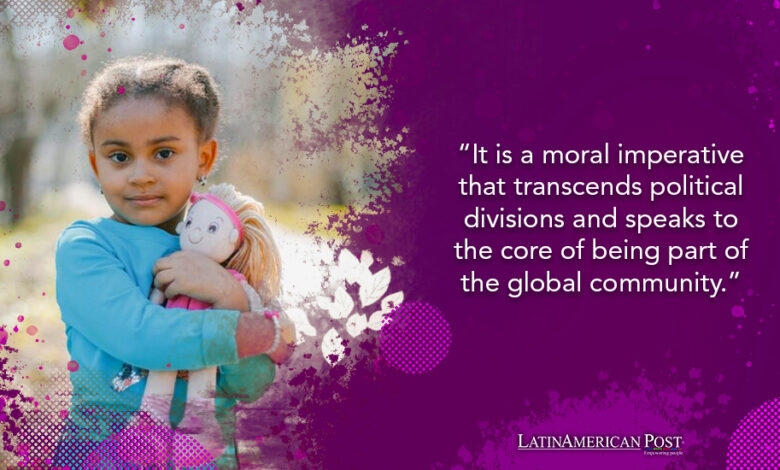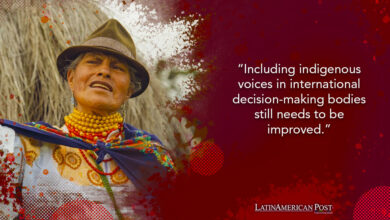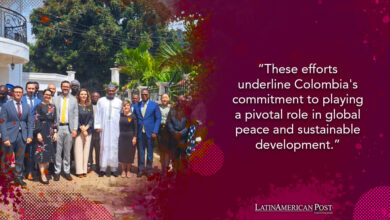Ensuring the Integrity of the Sponsorship Process: A Non-Partisan Priority for Latin America

Irrespective of political affiliations, the proper vetting of sponsors for unaccompanied migrant children entering the U.S. is a critical issue that transcends borders, highlighting a shared responsibility for the safety and well-being of vulnerable populations in Latin America.
Unveiling Gaps in Child Sponsorship Oversight
The recent findings by the Office of Inspector General (OIG) concerning the inadequate investigation of sponsors for unaccompanied migrant children by the U.S. agency tasked with their care are deeply troubling. According to the report titled “Gaps in Sponsor Selection and Follow-up to Enhance Safety for Unaccompanied Children,” significant deficiencies were identified in the procedures of the Office of Refugee Resettlement (ORR) within the Department of Health and Human Services (HHS). These gaps not only expose children to potential harm but also spotlight a critical area where Latin America, irrespective of political stances, must rally for better oversight and accountability.
The analysis, which reviewed 300 cases of children crossing the U.S. border from Mexico without a parent or guardian between March and April 2021, revealed that 16% of files needed more documentation required by sponsor security checks. Moreover, 19% of these children were placed with sponsors pending FBI fingerprint or state record results, which were never updated in the children’s files. This oversight is not merely an administrative lapse; it represents a fundamental failure to ensure the safety and welfare of the most vulnerable.
Perhaps even more concerning is that 35% of sponsor IDs had legibility issues, complicating the verification process. The report also highlighted instances where mandatory home studies were not conducted and follow-up calls needed to be made or documented. Such omissions and oversights raise significant concerns about the thoroughness and reliability of the vetting process.
The importance of this issue transcends national borders and political ideologies. Children fleeing poverty, violence, or instability in their home countries to seek refuge in the United States represent one of the most pressing humanitarian challenges facing the Americas today. The journey these children undertake is complex, and the expectation upon their arrival is that they will be afforded protection, care, and a chance at a better life. It is, therefore, imperative that the process designed to ensure their safety is robust, transparent, and operates with the utmost integrity.
OIG’s Call to Action: Essential Measures for Child Safety
The OIG’s recommendations for ORR to implement additional measures to ensure all security checks are performed and documented before a child is released to a sponsor are not just bureaucratic improvements; they are essential to safeguarding children’s rights and welfare. This issue should be a non-partisan priority, for it speaks to the fundamental human values of protection and care for the vulnerable.
Latin America, with its diverse tapestry of political beliefs and social structures, must recognize the critical role it plays in this process. Countries of origin, transit, and destination share a collective responsibility to protect these children. It is a moral imperative that transcends political divisions and speaks to the core of being part of the global community.
Collaborative Approach for Lasting Solutions
Improving the sponsorship process for unaccompanied migrant children is not solely about policy reform within the United States. It’s about fostering a collaborative approach involving governments, international organizations, and civil society across the Americas to address the root causes of migration, enhance protective mechanisms for children, and ensure that those responsible for sponsorship are thoroughly vetted and monitored.
The findings of the OIG report should serve as a wake-up call for all stakeholders involved in the migration process. It is a stark reminder of the existing vulnerabilities and the urgent need for a concerted effort to address them. The plight of unaccompanied migrant children is a litmus test for our collective humanity and our ability to come together to protect those who cannot defend themselves.
As we move forward, this issue mustn’t be politicized or used as a tool for nationalistic rhetoric. Instead, it should be approached with compassion, pragmatism, and a shared commitment to human dignity. The safety and well-being of unaccompanied migrant children should be a priority that unites us, not a battleground for ideological disputes.
Also read: Fostering More Powerful Ties: Why Latin America and Africa Must Unite for a Prosperous Future
The integrity of the sponsorship process for unaccompanied migrant children is a matter of human rights and child protection that demands our immediate attention. It is a complex issue requiring a nuanced, multifaceted response that acknowledges the shared responsibility of countries across Latin America and beyond. By working together, irrespective of our political differences, we can ensure that the process operates with the transparency, accountability, and compassion these children deserve. Let this be the area where we stand united for the sake of the vulnerable and the future we wish to build.





